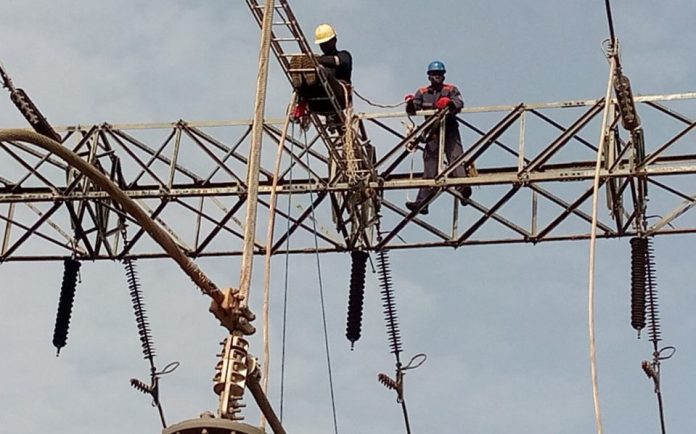The Federal Government has revealed that N8.8 billion has been spent to repair and restore power transmission towers across Nigeria that were destroyed by vandals and bandits. The announcement was made on Wednesday by the Managing Director of the Transmission Company of Nigeria (TCN), Engr. Suleiman Ahmed Abdulaziz, during the Quarterly Power Sector Working Group meeting in Abuja.
Engr. Abdulaziz, represented by the Executive Director of Transmission Service Provider (TSO), Engr. Olugbenga Emmanuel Ajiboye, disclosed that 128 transmission towers have been destroyed since January 13, 2024. He lamented the recurrence of vandalism despite the arrests of perpetrators, citing ineffective prosecution as a significant challenge.
“Till date, we have spent about N8.8 billion, by our estimation, to put them back to full and functional use,” Abdulaziz said. “It is so sad that each time the vandals were caught and taken to police for prosecution, police would incident them for theft instead of vandalism, and they will be bailed. If they are charged for vandalism, they cannot be bailed, but this is where we are.”
Highlighting the severity of the situation, Abdulaziz noted the challenges faced during the restoration of the Shiroro-Mando-Kaduna transmission towers. “We had to get full military escorts for our contractors to restore the transmission lines and towers. In some cases, they would only allow us to work for two hours a day, and at times, they declared the area unsafe for operations. How can we deliver electricity to Nigerians under these terrible circumstances?”
The Minister of Power, Chief Adebayo Adelabu, represented by his Chief Technical Adviser, Mr. Adedayo Olowoniyi, outlined the government’s plans to collaborate with international partners to improve electricity access. He revealed ongoing efforts with the World Bank and the African Development Bank (AfDB) to provide electricity to 50 million Nigerians by 2030 as part of the larger “Mission 300” initiative, which aims to bring electricity to 300 million Africans.
“Nigeria has a large population that is without electricity, and this is a great opportunity for us to be part of this process,” Adelabu said. He added that the government’s strategy involves public and private sector partnerships focusing on solar systems, mini and micro grids, and grid extensions.
The Minister also announced that President Bola Ahmed Tinubu is set to sign the Compact document for the Mission 300 project in Tanzania in January 2025. “The most important thing is that we have to drive the process by ourselves,” he emphasized.
The Nigerian power sector continues to grapple with numerous challenges, including vandalism, banditry, and insufficient infrastructure. The Federal Government has also faced criticism for inadequate security measures around critical power assets.

